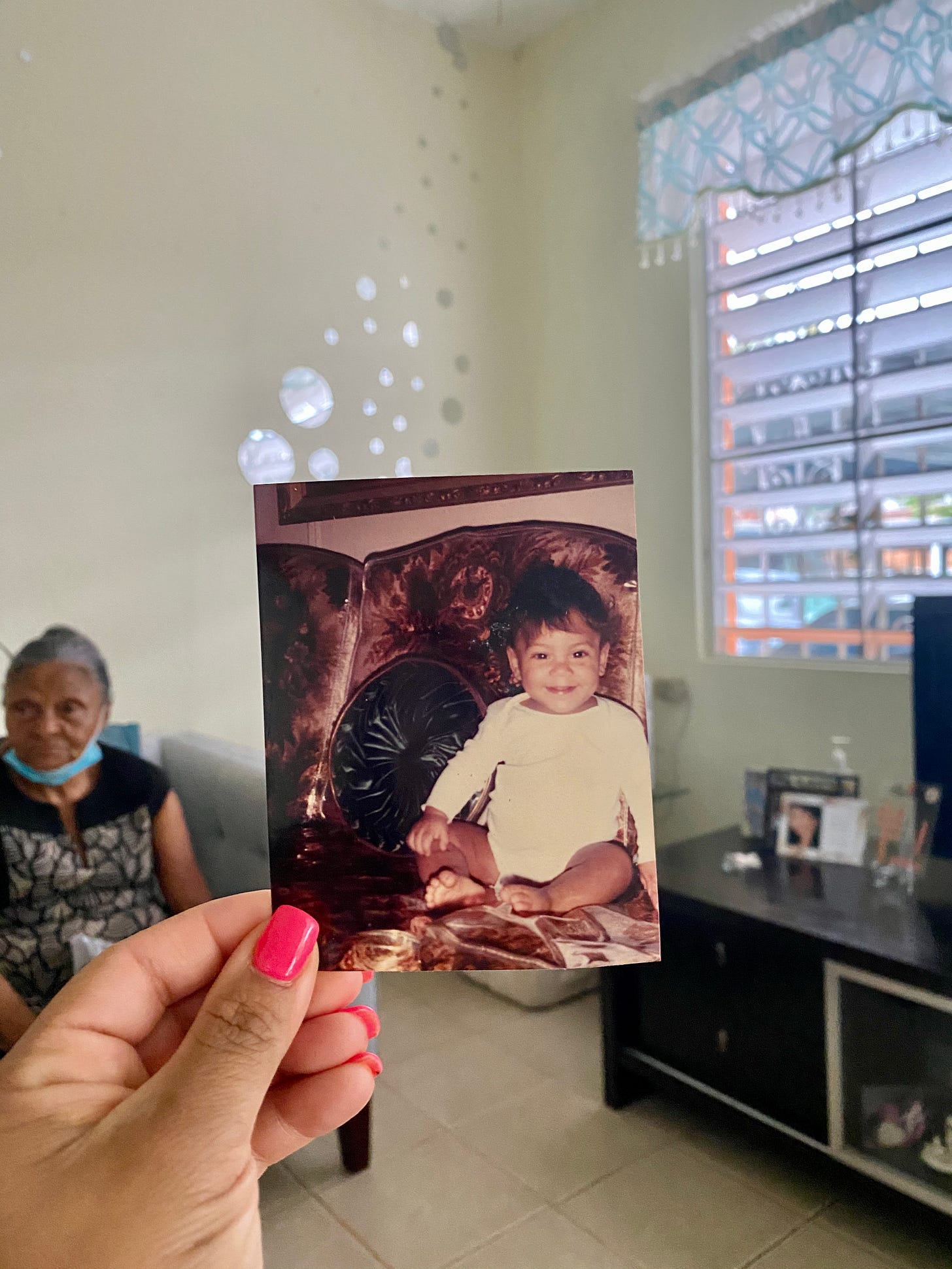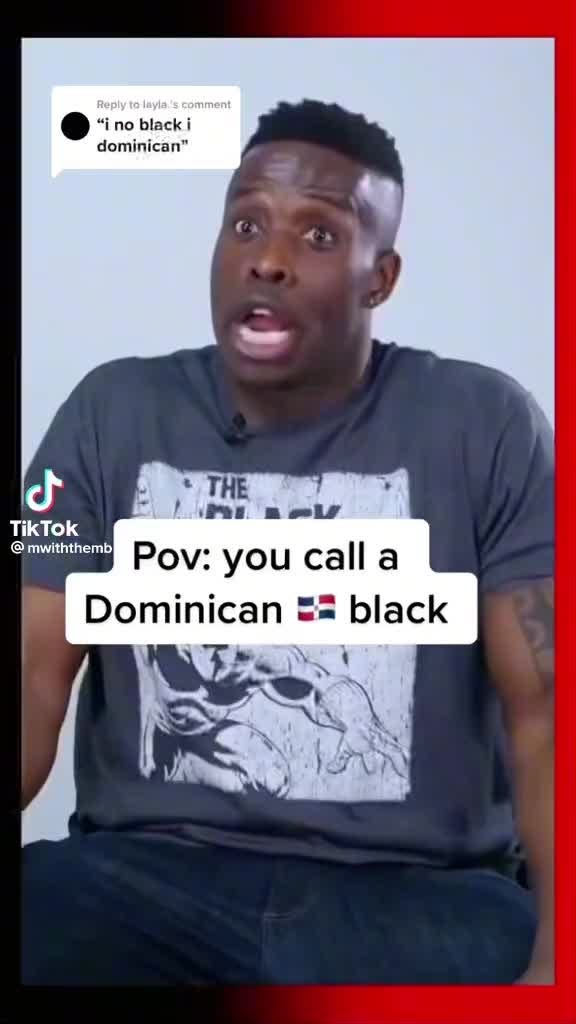(Photo: A baby photo of me with my abuela’s 94-year-old sister sitting in the background at her home in Puerto Rico)
When your identity is always a question for debate between people who cannot fit you into a checkbox on a diversity form, you begin to wonder about your origins. You start to wonder about the validity of statements like “but, you don’t look Puerto Rican,” and question everything that has been told about your family story. You start to look at the different shades of brown, starting with the darkest family member and following that to the lightest family member, wondering how everyone can range in color but only identify as one ethnicity.
If you read my article, Latinos Have Different Skin Tones. Privilege Included, then you have a slight understanding that there is a universal sentiment that Black skin - even in the Latin culture - is a symbol of slavery, racism, trauma, and ugliness. Something no one wants to be associated with.
Comedian Godfrey conducted an interview with VLADTV about the interconnected nature of La Latinidad and Africans and while it is in good humor, it is also telling of our culture. Latin people want nothing to do with their Blackness - even when all evidence points back to Africa.
 Tiktok failed to load.
Tiktok failed to load.Enable 3rd party cookies or use another browser
“No, nunca, I no Black!”
Oh, but we are.
Afro-Latinos’ views of race are also unique. When asked directly about their race, only 18% of Afro-Latinos identified their race or one of their races as black. In fact, higher shares of Afro-Latinos identified as white alone or white in combination with another race (39%) or volunteered that their race or one of their races was Hispanic (24%). Only 9% identified as mixed race.
After years of wanting to dig deep into my roots and find, for myself, a sense of identity - one that no one can take away from me or debate about - I submitted my DNA to Ancestry.com and it was confirmed, I am Black.
With 40 percent of my DNA tracing back to the countries in Africa, I finally felt supported in my identity. When my appearance began to cause more discussion among my peers and in between work relationships, I started to identify as Afro-Latina. Others were confused by my choice, but how could I identify as anything else? My family was deeply rooted on the island of Puerto Rico with many having Black skin and coarse hair and having a family line that dates back generations, it is assumed that there was a forced mingling of my Taino ancestors and that of my enslaved Black ancestors. On the surface, it seemed like the right choice.
And, it was.
According to the Pew Research Center, in the U.S., Latinos with Caribbean roots are more likely to identify as Afro-Latino or Afro-Caribbean than those with roots elsewhere (34% versus 22%, respectively). Those who identify as Afro-Latino are more concentrated on the East Coast and in the South than other Latinos (65% of Afro-Latinos live in these regions vs. 48% of other Latinos).
This self-identity led me to a feeling of comfort and emotional relief when I reviewed the results of my DNA:
Rooted in a long colonial history of Latin America - a time mixed with indigenous people, white Europeans, slaves from Africa, and Asians - there were 15 times as many African slaves “taken to Spanish and Portuguese colonies than to the U.S.”
Afro-Latinos are a significant percentage of the population of Latin America and the Caribbean Islands. According to a recent study, in Brazil, about half of the population is of African descent (black or mixed-race black). In the Caribbean, black Cubans make up about a third of that country’s population. In the Dominican Republic, black identity is much more complicated. Estimates of Afro-descent in the Dominican Republic range from about a quarter to nearly 90% of the population depending on whether the estimates include those who identify as “indio,” a group that includes many nonwhites and mixed-race individuals with African ancestry.
As Godfrey put it, “You’re black like me.”








I am a black American and I took an ancestry and found out I’m 15% Portuguese and my great Grandfather may have been Puerto Rican. I am connecting to all these 3rd and 4th cousins who are Puerto Rican and it’s amazing to see. I’m glad I found this page. Thank you @toniwu222 on TikTok and Ig